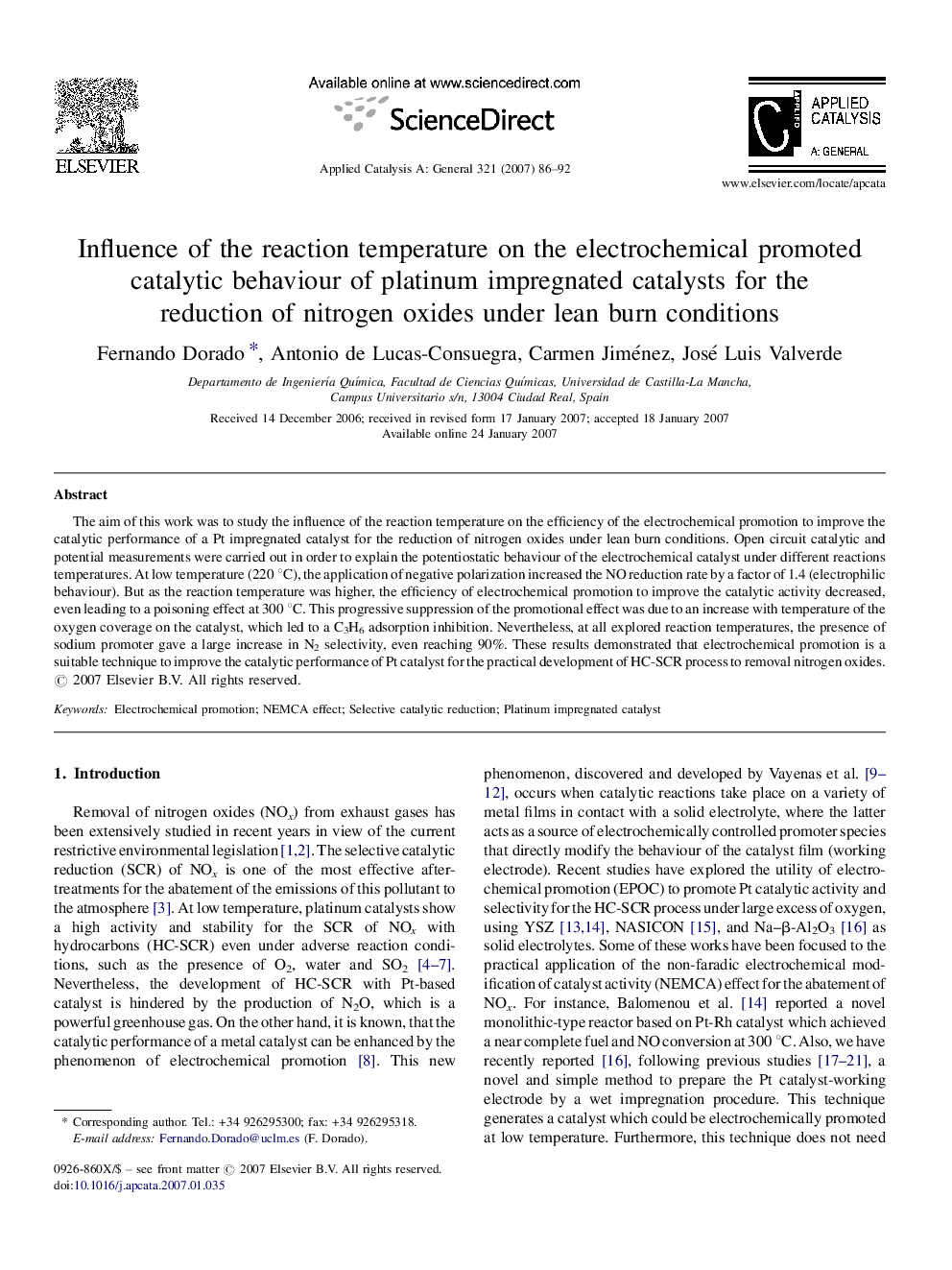| Article ID | Journal | Published Year | Pages | File Type |
|---|---|---|---|---|
| 43729 | Applied Catalysis A: General | 2007 | 7 Pages |
The aim of this work was to study the influence of the reaction temperature on the efficiency of the electrochemical promotion to improve the catalytic performance of a Pt impregnated catalyst for the reduction of nitrogen oxides under lean burn conditions. Open circuit catalytic and potential measurements were carried out in order to explain the potentiostatic behaviour of the electrochemical catalyst under different reactions temperatures. At low temperature (220 °C), the application of negative polarization increased the NO reduction rate by a factor of 1.4 (electrophilic behaviour). But as the reaction temperature was higher, the efficiency of electrochemical promotion to improve the catalytic activity decreased, even leading to a poisoning effect at 300 °C. This progressive suppression of the promotional effect was due to an increase with temperature of the oxygen coverage on the catalyst, which led to a C3H6 adsorption inhibition. Nevertheless, at all explored reaction temperatures, the presence of sodium promoter gave a large increase in N2 selectivity, even reaching 90%. These results demonstrated that electrochemical promotion is a suitable technique to improve the catalytic performance of Pt catalyst for the practical development of HC-SCR process to removal nitrogen oxides.
Graphical abstractThe efficiency of electrochemical promotion to improve the catalytic performance of a Pt impregnated catalyst for the reduction of NO was investigated in a typical temperature range of exhaust gases. As the reaction temperature increased the promotional phenomena in the catalytic activity decreased. However, the presence of sodium promoters always induced a large increase in N2 selectivity.Figure optionsDownload full-size imageDownload as PowerPoint slide
